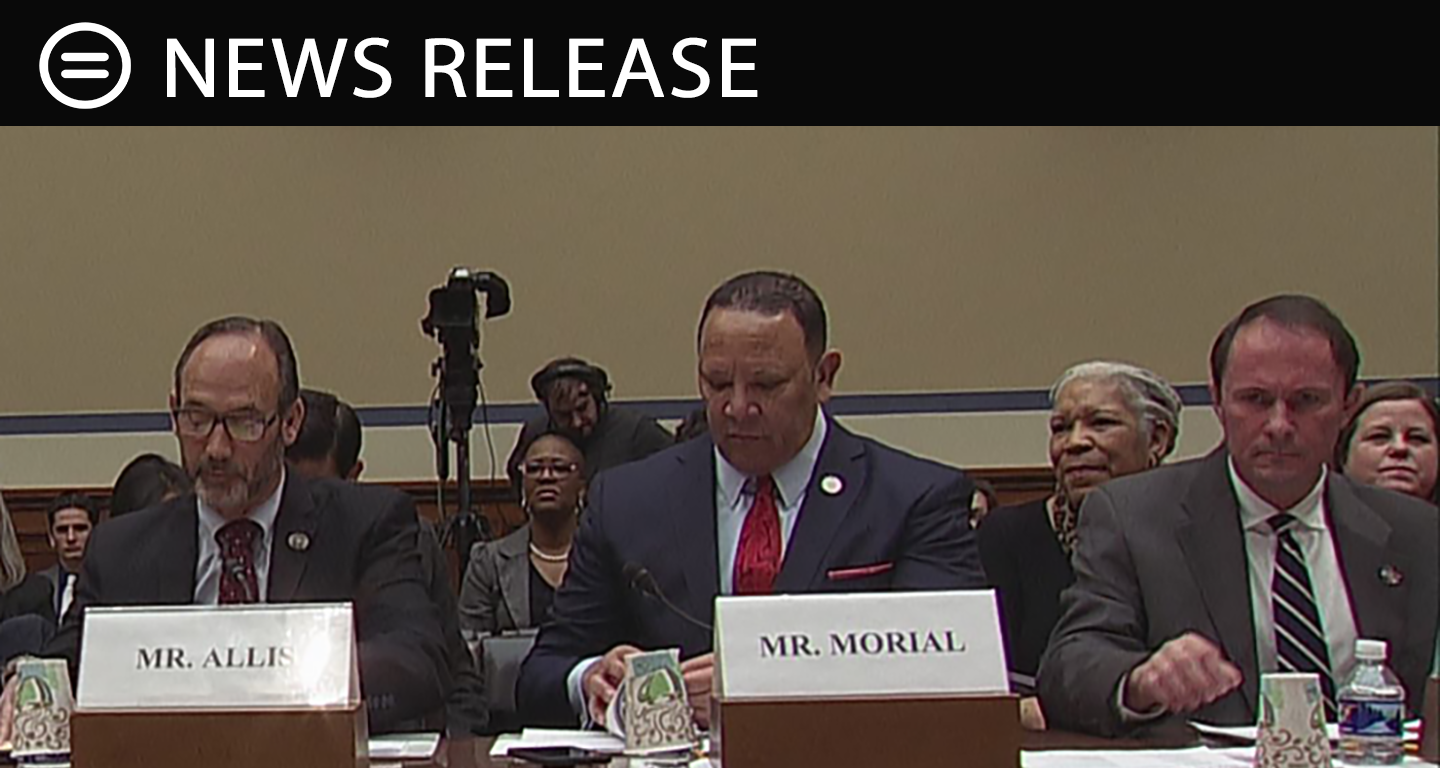Marc Morial Challenges Congress to "Rise To The Moment" on Police Reform

In Testimony, Marc Morial Challenges Congress to "Rise To The Moment" on Police Reform
WASHINGTON, D.C. (June 10, 2020) -- In dramatic testimony before the House Judiciary Committee today, National Urban League President Marc H. Morial compared the Justice in Policing Act to history civil rights legislation and reminded Congress that history is watching.
“This Congress must decide whether this is a 1922 moment, or a 1965 moment,” he said. “This Congress must decide whether to allow racist, violent police officers to continue slaughtering Black Americans with no accountability.”
Morial was referring to the year the Senate filibustered a House-passed anti-lynching act, and the year it passed the Voting Rights Act. He reminded the Committee that at least at least 4,742 people were lynched in the United States between 1882 and 1968, , the vast majority of them Black.
“They were murdered, brutally, in retaliation for offenses such as failing to use the title “Mr.” when referring to a white man, or accidentally bumping into a white girl while running to catch a train, or having any kind of dispute with a white person,” Morial said. “Their murders were often public spectacles, with thousands of white people gathered to witness the torture, mutilation, dismemberment, and/or burning of the victim.”
Because it was almost inconceivable in the late 19th Century and the early 20th Century that a white person in the south face justice for the murder of a Black person, the House of Representatives voted to make lynching a federal crime in 1922. White supremacists in the Senate blocked the bill.
“In over 200 attempts to pass anti-lynching legislation, the United States Senate blocked passage of such legislation. It was not until 2018 and again in 2019 that the Senate agreed to pass antilynching legislation by unanimous consent,” Morial said. “And then on the National Day of Mourning to honor the death of George Floyd, one obstinate Senator returned the senate to its historic role of blocking the passage of anti-lynching legislation.”
The United States still has no federal anti-lynching statue.
Morial further reminded congress of the dozens of civil rights activists murdered between 1954 and 1965 for trying to desegregate schools and register Black voters.
“Four little girls in a Birmingham died in a church that was dynamited because it was used as a meeting place for civil rights leaders,” Morial said. “The nation was confronted with the images of children being blasted with firehoses and mauled by attack dogs, and peaceful marchers being bludgeoned with nightsticks.”
In 1964, Congress responded with the Civil Rights Act, and in 1965, the Voting Rights Act.
In the years since the murder of 17-year-old Trayvon Martin gave rise to the Black Lives Matter movement, dozens of unarmed Black Americans have died at the hands of police. Morial named just a few of them: Tamir Rice. John Crawford III. Philando Castle. Freddie Gray. Breonna Taylor. George Floyd. Since 2015, police have shot and killed 1,291 Black people, 123 of them unarmed.
“Ahmaud Arbery’s killers weren’t active police, but one had just retired from a 30-year career in law enforcement.,” Morial said “As Ahmaud fell to the ground, fatally wounded, the gunman spat out an obscene racial slur. “
During the famous six-week filibuster in 1938, led by Georgia Senator Richard Russell and namesake of the Russell Senate Office Building, Russell declared that anti-lynching legislation was "the first step in a program of such far-reaching importance and of such dire effect and consequences that it would strike down the civilization of the States which sent us to this body … for other legislation of this type that we know will certainly follow."
If anti-lynching legislation passed, next Congress would pass laws "to control the requirements of suffrage and the qualifications of voters" within the states; "to enforce social equality ... wiping out all segregation of the races;" and "to strike down the laws of the several States which prevent the intermarriage of whites and blacks."
“Richard Russell was wrong about a great many things,” Morial said. “On this one issue he was correct, Congress did pass the Civil Rights Act of 1964 to outlaw Jim Crow segregation in places of public accommodation. Congress did pass the Voting Rights Act of 1965 to impose federal requirements to prevent voter suppression and ensure the right of Blacks to vote in this country. The only thing Russell was wrong about was the timing.”
Morial concluded, “Now it’s time for Congress to pass the Justice in Policing Act of 2020 to ensure that no person under color of law can act unilaterally as cop, judge, jury, and executioner in this country. It’s time for the House, but more importantly, the Senate to fulfill its role in eradicating the last legal vestige of lynching and pass this bill.
The National Urban League is a historic civil rights organization dedicated to economic empowerment in order to elevate the standard of living in historically underserved urban communities. The National Urban League spearheads the efforts of its 90 local affiliates through the development of programs, public policy research and advocacy, providing direct services that impact and improve the lives of more than 2 million people annually nationwide. Visit www.nul.org and follow us on Twitter and Instagram: @NatUrbanLeague.

